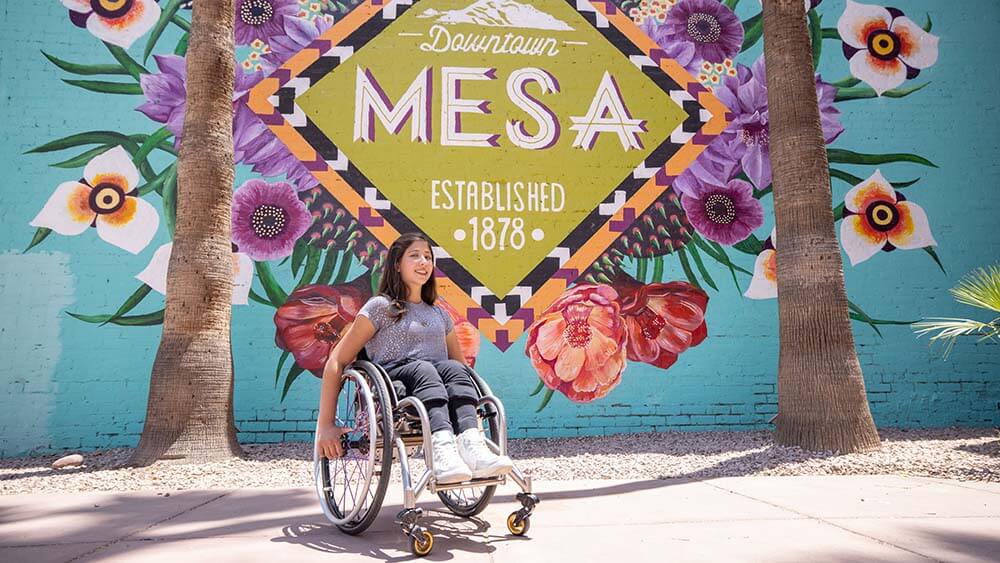
Mesa, Arizona has initiated many accessibility programs, including becoming the first city to earn the Autism Certified City designation from the International Board of Credentialing and Continuing Education Standards.
The story of how Mesa, Arizona, became the inaugural Autism Certified City began in 2018, when Marc Garcia, Visit Mesa president and CEO, took his young autistic son on a family vacation and had a less-than-stellar experience. Frustrated by the stares, unsolicited advice, and general lack of awareness of his son’s needs from hospitality workers, Garcia went home with a new mission — to ensure that the city he represented would always provide a welcoming environment to visitors with autism.

Alison Brooks
A year later, Mesa became the first-ever city to receive the official designation from the International Board of Credentialing and Continuing Education Standards (IBCCES). “He wanted it to be something more than just us being, as a city, autism-friendly,” said Alison Brooks, director of destination experience and advocacy at Visit Mesa. “He wanted something that vouches that we’ve been trained.”
Visit Mesa kicked off the Autism Certified City process and the rest of the destination quickly followed suit. For an entire city to earn the designation, a sizeable number of stakeholders must buy in, with their staff completing the training and certification process. A destination’s key attractions typically undergo an on-site review so that IBCCES staff can review the guest experience and make specific recommendations in terms of accessibility, said Meredith Tekin, IBCCES president. An IBCCES Sensory Guide at Mesa’s Arizona Museum of Natural History, for example, rates sensory levels so visitors exploring its galleries know what to expect. One wing is rated highest (level 4) in the sight category because its fluorescent overhead lighting, exhibit spotlights, and black lights can trigger difficulty focusing, irritability, fear, stress, and/or anxiety in someone with autism. Currently, Mesa has about 50 businesses and almost 5,000 people who have been individually certified.
Mesa’s dedication to this cause has led to the city hosting the AutismOne Conference for the first time, Aug. 18-21, 2022. The group is expected to book 600 room nights and many of the city’s certified venues and attractions will play a role in hosting the group.
While Mesa is the only city to complete the certification, several other U.S. cities are undertaking the process. “One in 44 children in the U.S. is diagnosed with autism and many adults and children are undiagnosed, and one in six individuals has a sensory need or disorder,” Tekin said. “The Autism Certified City program allows communities to rollout the welcome mat to visitors and ensure residents have a better quality of life.”
Learn more about the International Board of Credentialing and Continuing Education Standards’ Autism Certifications.
Extra Effort
Beyond its Autism Certified City designation, Mesa has several other accessibility initiatives.
- The Hidden Disabilities Sunflower Program helps those with non-visible disabilities communicate their needs by wearing a bright green lanyard or badge emblazoned with sunflowers. Certified businesses have trained workers to recognize the pattern so that they can provide extra assistance if necessary.
- Visit Mesa has partnered with Aira — an app that provides live, human-to-human assistance for visual interpretation — for free, unlimited service within the city’s borders, an essential service for visitors with visual impairments experiencing a new place.
- Visit Mesa also has partnered with Threshold 360 to provide 360-degree virtual tours of area hotels, attractions, and other locations to help visitors better prepare for their trip.
Jennifer N. Dienst is senior editor at Convene.
